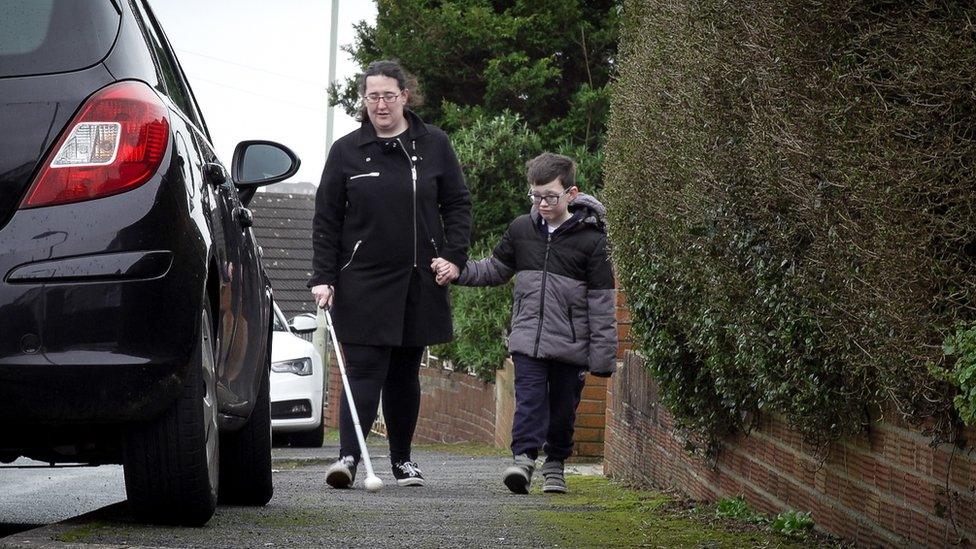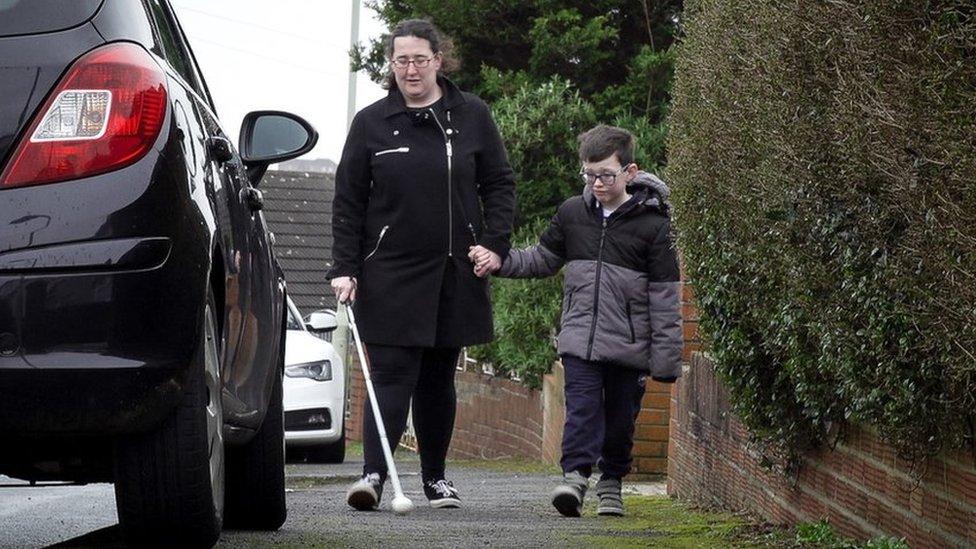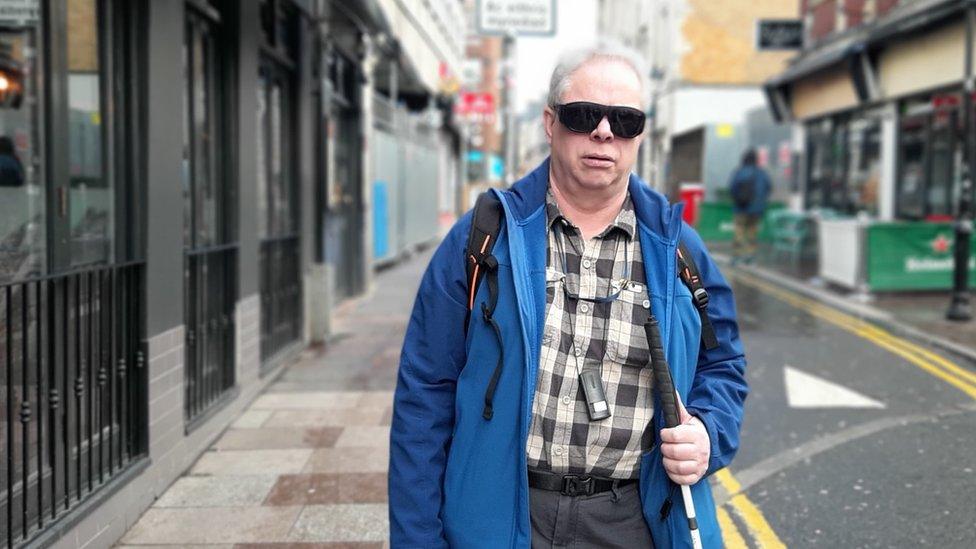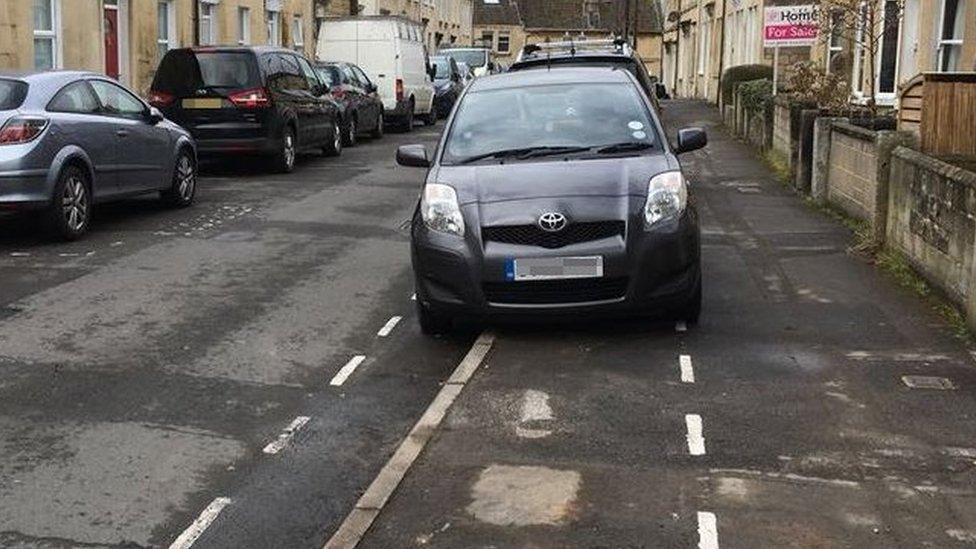Motorists to face tougher measures over pavement parking
- Published

Rhian Morris launched a campaign to ban pavement parking
Drivers parking on pavements could soon face tougher fines under new powers for councils.
An independent expert group recommended the move in an effort to "save lives and put people before cars".
All 10 recommendations of the Welsh Pavement Parking Taskforce are being accepted by the Welsh Government.
Sight loss charity RNIB Cymru welcomed the decision, claiming it was "a huge win for blind and partially sighted people in Wales".
Wales' deputy transport minister Lee Waters, who set up the taskforce, said the law prohibiting causing unnecessary obstruction of the highway is currently unclear and "rarely enforced".
Rhian Morris and her son Harley, seven, are both visually impaired.
She said she had been sworn at after asking drivers to move their cars when walking Harley to school in Bridgend: "Often you don't see the car until it is too late. We have to go on to the road which is very dangerous."
"It makes our lives and other people's lives really difficult," added Harley.
Rhian Morris says she and her seven-year-old often have to walk on the road to avoid parked cars
The taskforce rejected an outright ban being pursued in Scotland, which is set to take five years to implement, saying it was too slow and complex.
The UK Government has recently begun to consult on a way to tackle the problem in England.
Local authorities in Wales could have extra parking powers from July 2022.
"Clear pavements are essential for blind and partially sighted people, and parking on pavements can cause serious problems," said RNIB Cymru director Ansley Workman.
"We are pleased to hear that Welsh Government has committed to taking this issue seriously and look forward to seeing real change across the nation."
Mr Waters added: "We want more people to walk for short journeys and yet we tolerate an environment that is often not pedestrian friendly - too many routes are cluttered or blocked.
He explained he did not want to penalise those who had no alternative, such as those parking in streets where there were more cars than spaces.
"This approach lets councils target hot spots and vary its approach depending on local circumstances," he said.
Mr Waters said the pavement plan and the move to make 20mph the default speed limit in residential areas rather than 30mph, "have real potential to save lives and rebalance the environment in favour of pedestrians to create communities that put people before cars".
- Published22 February 2020

- Published27 February 2020

- Published13 June 2018
